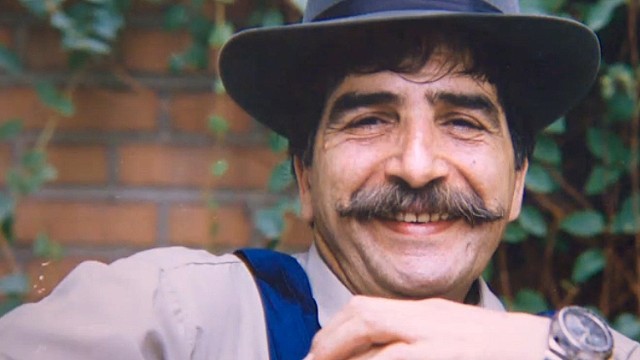
The human cost of Iranian sanctions
STORY HIGHLIGHTS
- Iranians say access to life-saving drugs is difficult because of Western sanctions
- West has imposed harsh economic sanctions for Iran’s failure to suspend nuclear program
- Economic sanctions targeting Iranian banks and energy sector have crippled Iran’s economy
- U.S. officials say Western sanctions are designed to target government, not citizens
In July, Iran lost one of its most acclaimed playwrights and directors when Mahmoud Ostad-Mohammad passed away in Tehran at the age of 62.
Scores of relatives, friends, and theater lovers attended his funeral ceremony that was adorned with pictures of Ostad-Mohammad — his trademark mustache and playful smile on display. Some wept while embracing copies of his famous screenplays.
Among the mourners was Ostad-Mohammad’s daughter, Mana, who is convinced that Western sanctions against Iran were partly to blame for his father’s passing.
“This was the doctor’s testimony,” said Mana Ostad-Mohammad. “This is based on my father’s medical tests.”
Through five decades, some of the most famous Iranian plays were brought to life by Ostad-Mohammad. Some were Iranian classics. Others were originals. All were stories about the loves and losses of everyday Iranians.
Then in 2011, came a diagnosis of late-stage liver cancer. Surgery was not an option, but Ostad-Mohammad’s oncologist prescribed the cancer drug Nexavar. According to his doctor and medical tests, the drug appeared to stop the cancer from spreading.
“We were very hopeful that if he gets through this stage, he could get healthy and start living his life again,” said his daughter Mana.
But beginning last year — soon after Washington and Western powers imposed additional sanctions against Iran to rein in its nuclear program — Iranian doctors, pharmacists and patients say finding Nexavar and several other drugs that treated deadly diseases became increasingly difficult.
Western powers have stepped up the pressure on Iran since 2006, when the U.N. Security Council voted unanimously to impose new sanctions for Tehran’s failure to suspend its nuclear program. The European Union imposed further sanctions last year.
U.S. officials have long said medical goods are exempt from the measures and that Western sanctions are specifically designed to target the government, not ordinary Iranians.
But Iranian officials say with the Western ban on Iranian banks doing business with much of the outside world, even medical goods that are exempt from the sanctions are often impossible to import.
“We have a serious shortage of drugs due to high prices or because they’re impossible to purchase,” says Tehran-based pharmacist Imen Heirani.
Heirani said everyday he gets as many as 30 calls a day from patients looking for hard-to-find drugs.
“They’re obviously tired because they’ve been searching for a while.”
Mana was getting tired too. This year, finding Nexavar — the drug that helped keep her father alive — became harder than ever.
“It was very unexpected,” said Mana. “For 18 months we could easily get the drug but now we couldn’t. We didn’t know what to do.”
Searching for the drug became Mana’s daily mission.
If pharmacies in Tehran didn’t have Nexavar, Mana would open her phone book and start dialing pharmacies in other Iranian cities like Tabriz, Isfahan and Mashad.
But last March finding Nexavar became virtually impossible, she says.
Medical tests then showed her father’s feto-protein level — an indicator of cancer — skyrocketed over the four months he went without Nexavar.
On July 25, Ostad-Mohammad lost his fight with cancer. Iran lost a beloved playwright. And a daughter lost a father who she believes was a victim of Western sanctions and a political conflict that had nothing to do with him.
“More than being angry, I think about how simple-minded politicians are,” she said.
“Sanctions are impacting the people, not the groups politicians say they’re impacting.”


Leave a reply